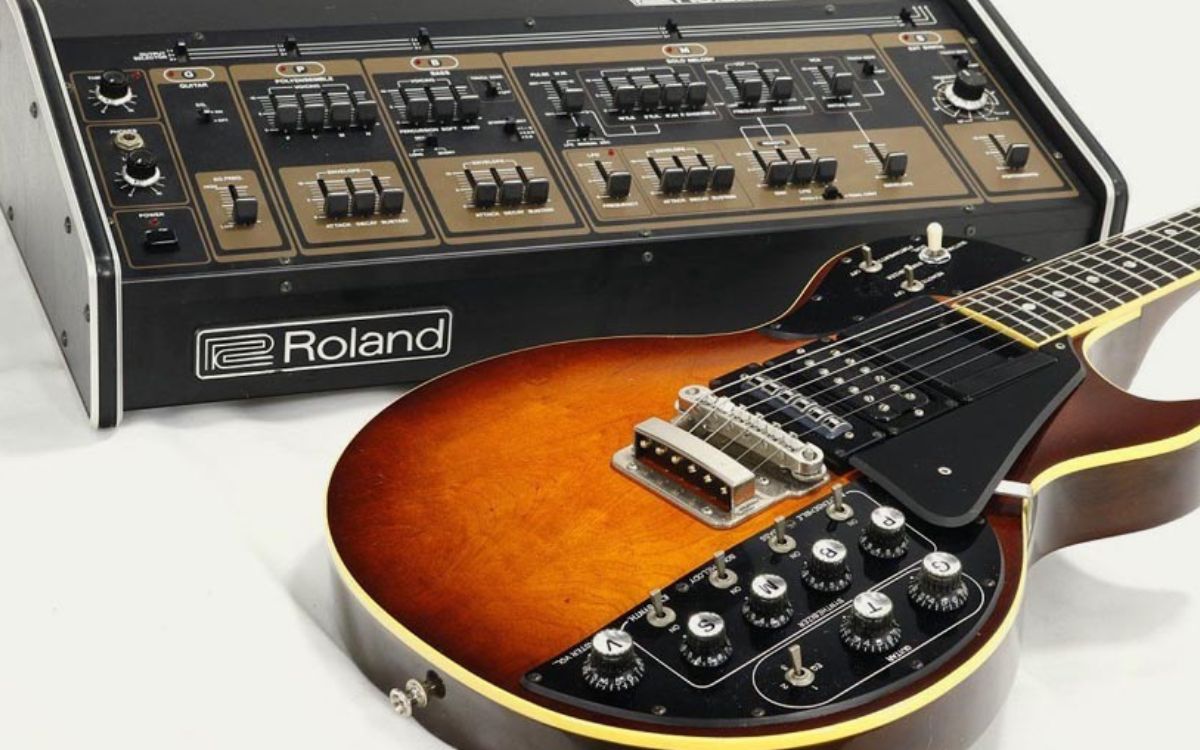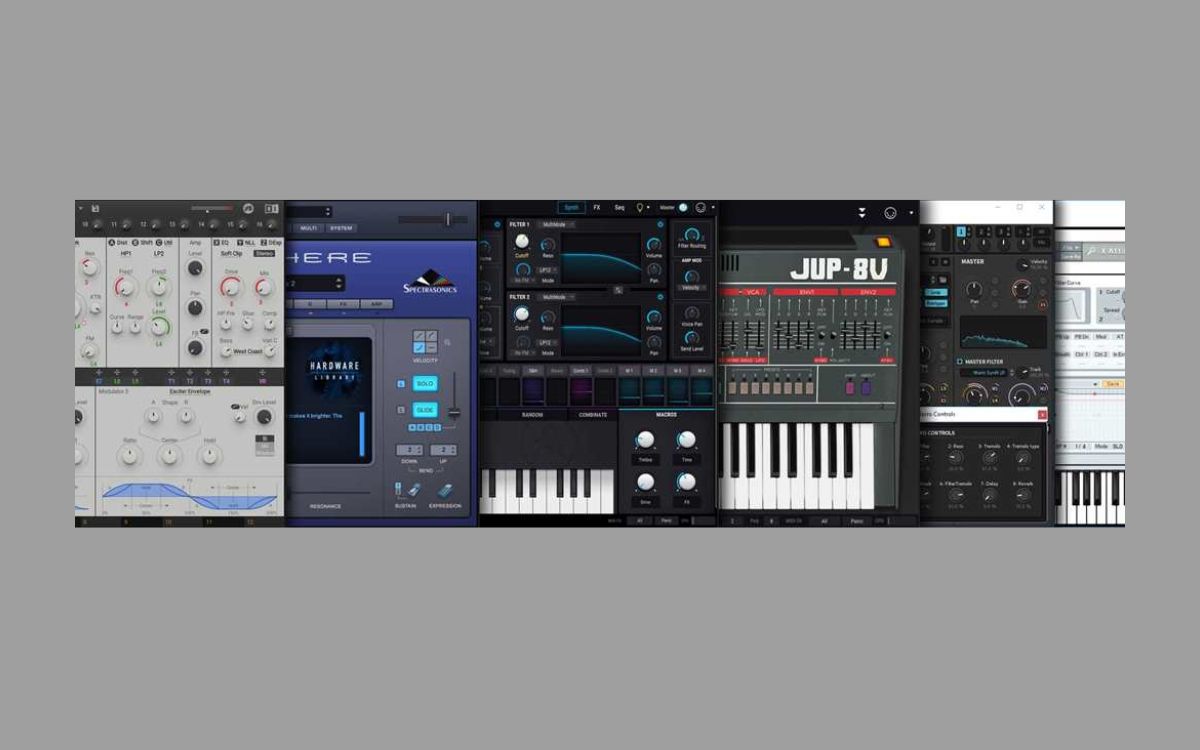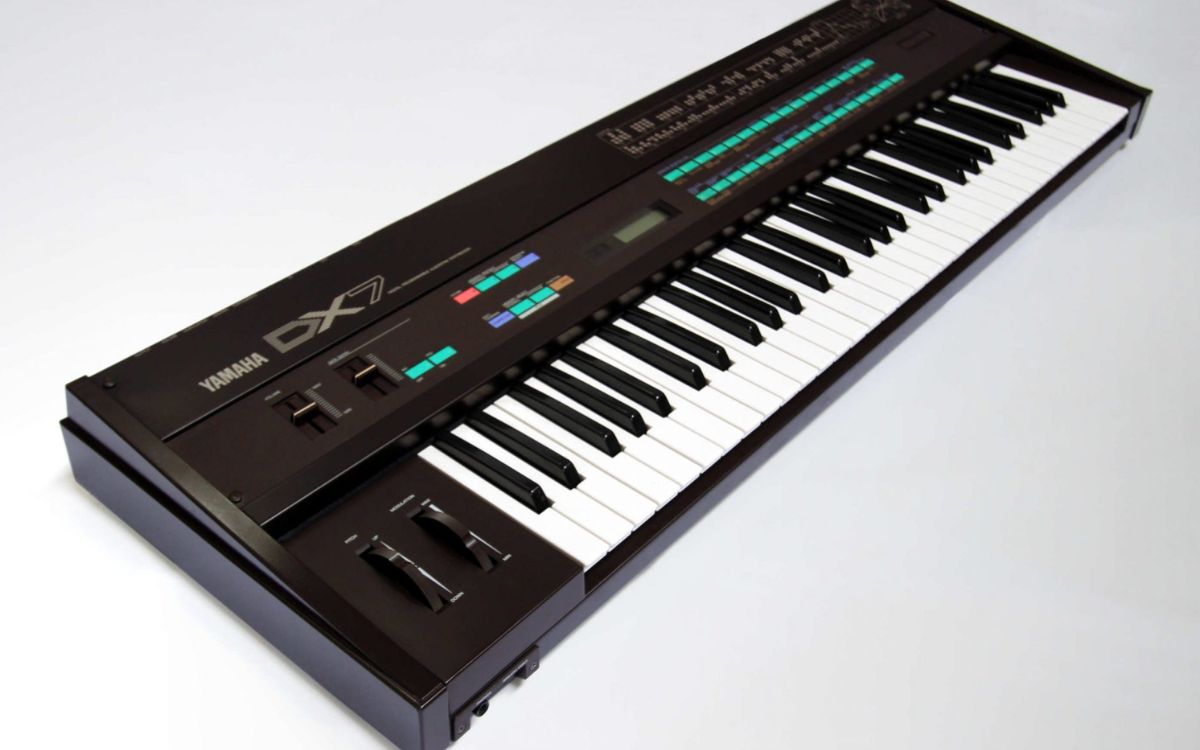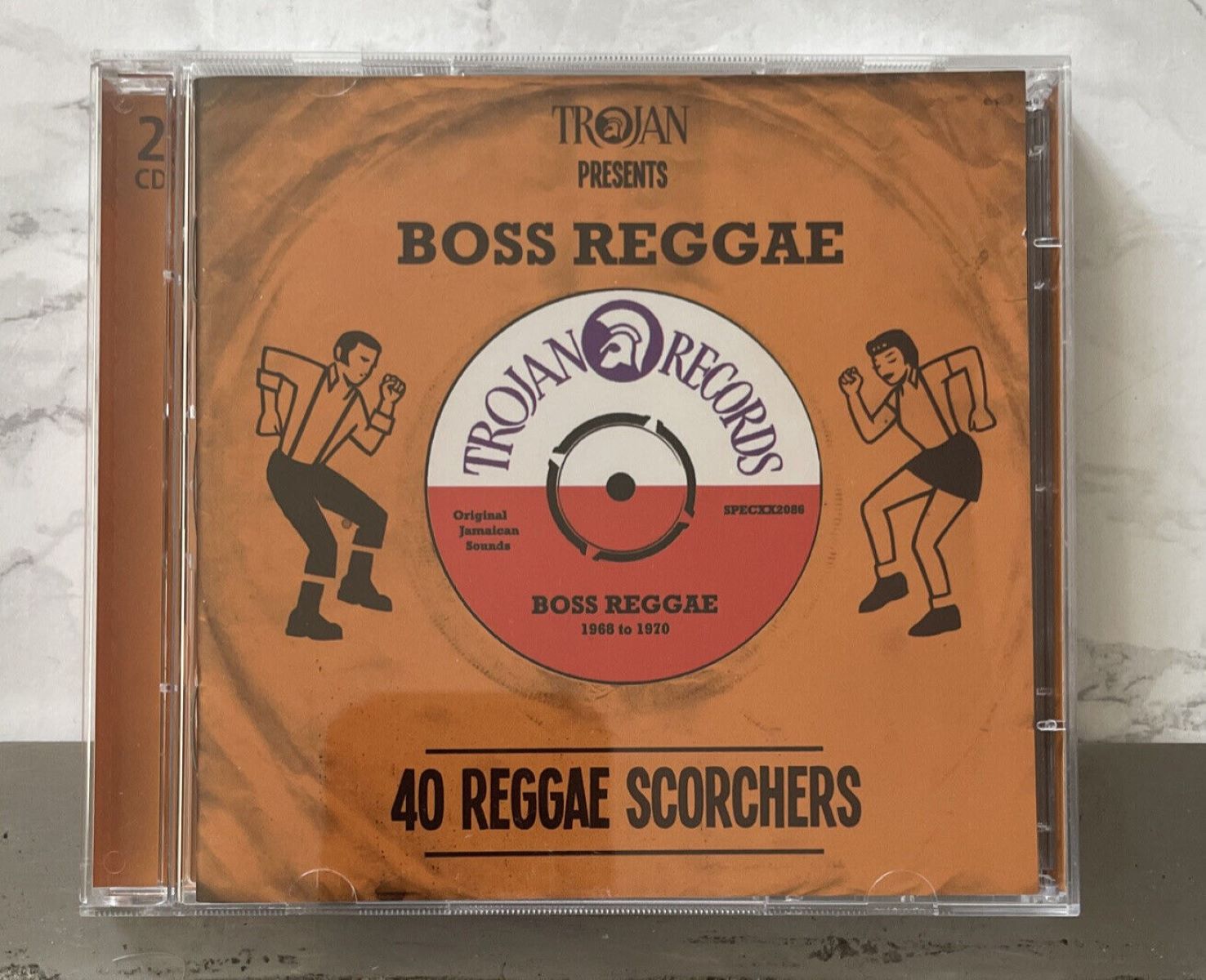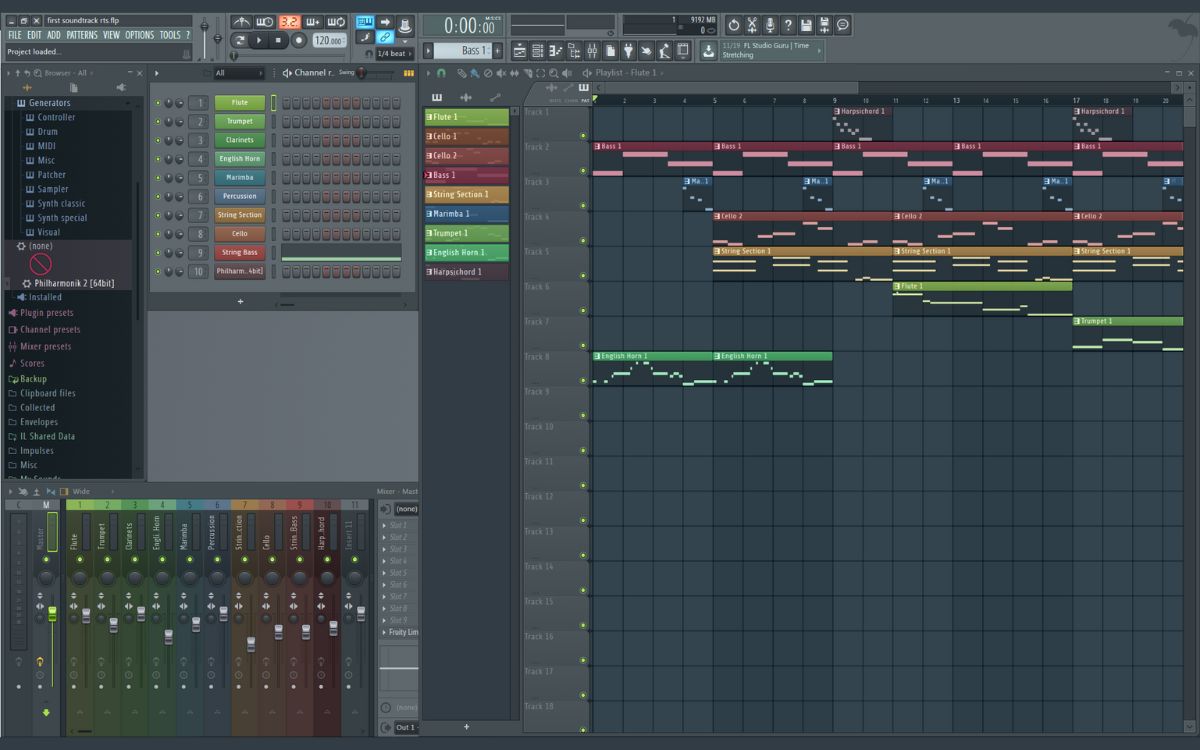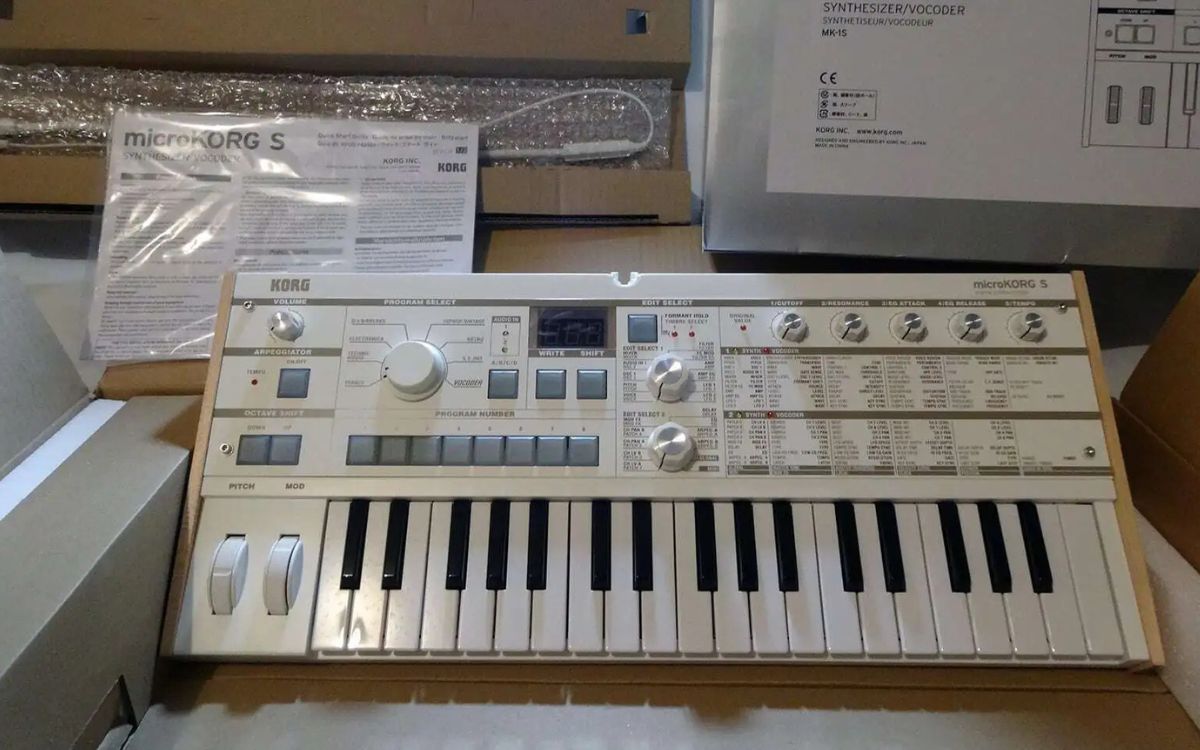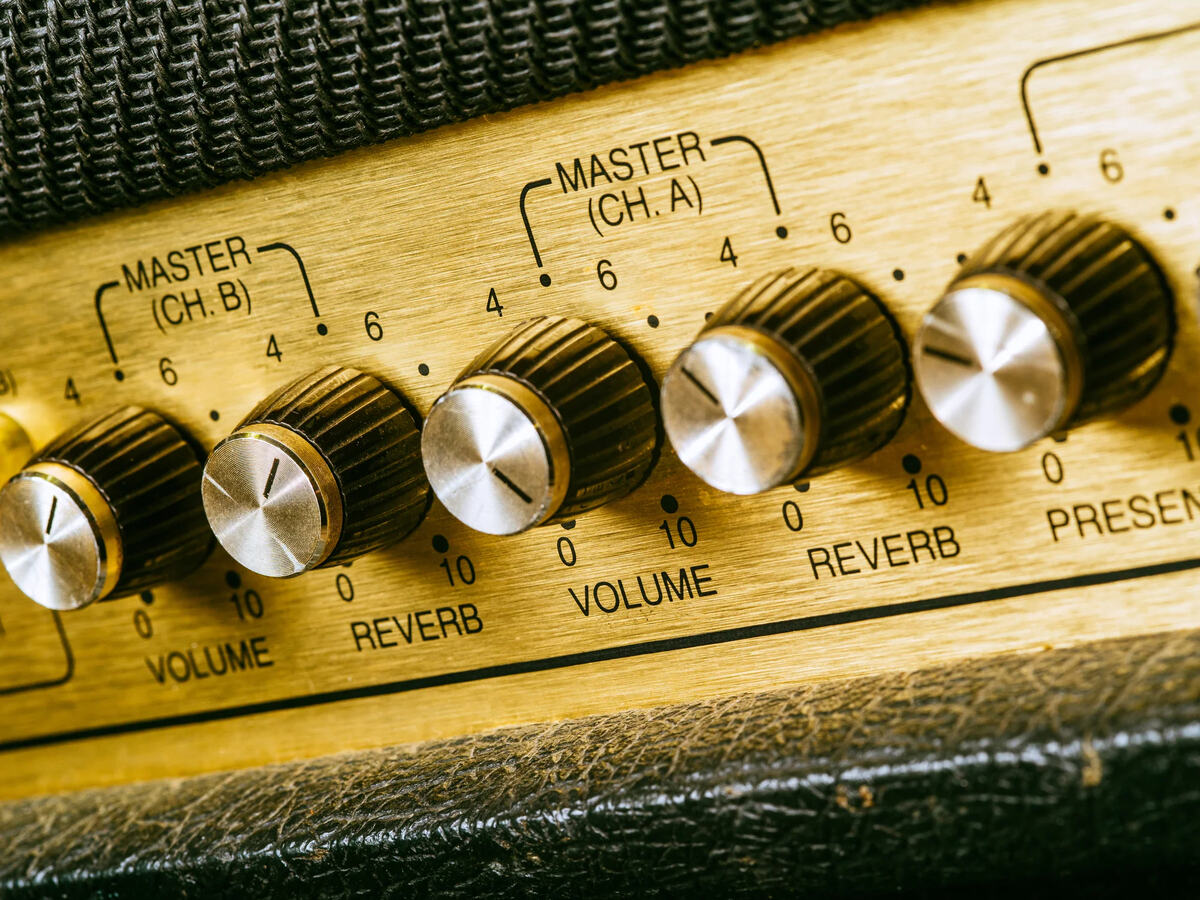Home>Instruments>Synthesizer>Who Is Using Boss Sy-300 Guitar Synthesizer?
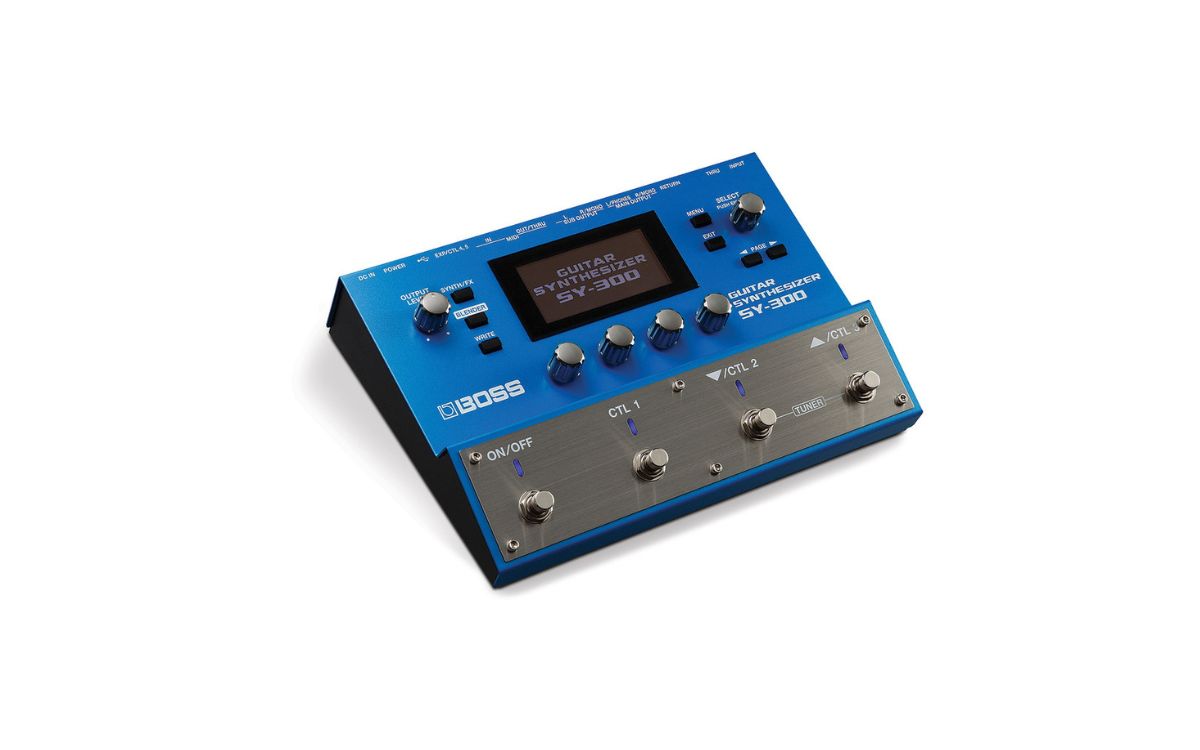

Synthesizer
Who Is Using Boss Sy-300 Guitar Synthesizer?
Modified: January 22, 2024
Discover who is using the Boss SY-300 Guitar Synthesizer and explore its innovative features and capabilities. Join the world of synthesizers and elevate your guitar playing to new heights.
(Many of the links in this article redirect to a specific reviewed product. Your purchase of these products through affiliate links helps to generate commission for AudioLover.com, at no extra cost. Learn more)
Table of Contents
Introduction
The world of music is constantly evolving, pushing the boundaries of what is possible with traditional instruments. One particular instrument that has undergone significant advancements in recent years is the guitar synthesizer. These ingenious devices bridge the gap between traditional guitar playing and the vast sonic possibilities of synthesis, allowing musicians to explore new sounds and push their creativity to new heights.
One such guitar synthesizer that has garnered considerable attention in the music industry is the Boss SY-300. This cutting-edge synthesizer is the product of Boss’ decades-long expertise in guitar effects and synthesis technology. With its revolutionary design and impressive array of features, the SY-300 has become a go-to choice for guitarists looking to expand their sonic palette and unlock new realms of musical expression.
In this article, we will delve into the world of the Boss SY-300 Guitar Synthesizer and explore how it has been embraced by artists and musicians across various genres. We will take an in-depth look at its features and performance capabilities, as well as analyze its benefits and drawbacks. Additionally, we will compare the SY-300 with other guitar synthesizers in the market to highlight its unique qualities.
Whether you are a seasoned guitarist looking to explore new sonic territory or a beginner interested in the possibilities of guitar synthesis, this article will provide valuable insights into the world of the Boss SY-300 and its role in shaping the future of guitar playing.
Advancements in Guitar Synthesizer Technology
Guitar synthesizers have come a long way since their inception. In the early days, these devices were bulky and limited in functionality, often requiring complex setups with multiple pedals and external hardware. However, advancements in technology have revolutionized the world of guitar synthesis, making it more accessible and versatile than ever before.
One of the significant advancements in guitar synthesizer technology is the integration of digital signal processing (DSP) capabilities. DSP allows for more precise and realistic emulation of various instrument sounds, including pianos, strings, horns, and even other guitars. This advancement enables guitarists to create authentic and expressive performances that were once only possible with dedicated MIDI controllers.
Furthermore, the development of polyphonic tracking technology has been a game-changer for guitar synthesizers. In the past, tracking individual notes accurately on a guitar was a challenging task, resulting in glitchy and inaccurate synth sounds. However, modern guitar synthesizers, like the Boss SY-300, utilize advanced tracking algorithms that can accurately track each string and translate it into polyphonic synthesizer sounds in real-time.
Another notable advancement is the improvement in user interface design and intuitive control systems. Guitar synthesizers now feature more streamlined interfaces, with easily accessible knobs, buttons, and displays, allowing guitarists to navigate through various parameters and presets effortlessly. This makes it easier to shape and tweak sounds on the fly, enhancing the overall performance experience.
Wireless connectivity is yet another innovation that has made guitar synthesizers more convenient and flexible. With the ability to connect wirelessly to external devices, guitarists can control and trigger synthesizer sounds remotely, freeing them from the constraints of being tethered to a physical device. This wireless functionality opens up a whole new world of possibilities for live performances and studio recording.
Overall, the advancements in guitar synthesizer technology have transformed the way guitarists approach music creation. With improved sound quality, better tracking, enhanced user interfaces, and wireless connectivity, guitar synthesizers have become powerful tools for unlocking new creative potential and expanding sonic horizons.
Overview of the Boss SY-300 Guitar Synthesizer
The Boss SY-300 Guitar Synthesizer is a groundbreaking instrument that combines the expressive capabilities of a guitar with the vast sound palette of a synthesizer. Unlike traditional guitar synthesizers that require special pickups or external hardware, the SY-300 is a self-contained unit that only requires a standard guitar with a 1/4-inch output.
One of the standout features of the SY-300 is its ability to produce polyphonic synthesizer sounds without the need for a hexaphonic pickup. Instead, it utilizes advanced DSP technology and complex algorithms to accurately track each note played on the guitar and generate authentic synth tones in real-time.
The SY-300 boasts a wide range of built-in synth sounds, including leads, pads, basses, and more. These sounds can be further customized and shaped using the intuitive control knobs and buttons on the front panel of the unit. With parameters such as envelope, filter, and modulation controls, guitarists have an incredible amount of flexibility in sculpting their desired tones.
Furthermore, the SY-300 allows for seamless integration with external effects pedals thanks to its extensive I/O options. It features a dedicated effects loop, MIDI capabilities, USB connectivity, and even a CV/GATE output for interfacing with analog synths. This versatility makes it a valuable addition to any guitarist’s pedalboard or studio setup.
Another noteworthy feature is the SY-300’s ability to capture and sample external audio sources. With its built-in instrument input, guitarists can sample and manipulate external audio, whether it be vocals, drums, or any other sound. This opens up endless creative possibilities for layering and transforming sounds in real-time.
Additionally, the SY-300 offers onboard looping capabilities, allowing guitarists to create intricate layers of synth sounds and guitar parts on the fly. This feature is especially useful for solo performances or for building complex compositions in the studio.
Overall, the Boss SY-300 Guitar Synthesizer breaks new ground in the world of guitar synthesis. With its innovative design, robust sound engine, extensive connectivity options, and intuitive controls, it provides guitarists with a truly immersive and limitless sonic experience.
Artists and Musicians Utilizing the Boss SY-300
The Boss SY-300 Guitar Synthesizer has gained popularity among a wide range of musicians and artists across various genres. Its versatility, ease of use, and cutting-edge technology have made it a go-to choice for those looking to push the boundaries of their guitar playing and experiment with new sounds.
One notable artist who has embraced the SY-300 is Adrian Belew, the renowned guitarist known for his work with artists such as David Bowie, Talking Heads, and King Crimson. Belew has incorporated the SY-300 into his live performances, using its expansive sound palette to create ambient textures, lush pads, and unique guitar-synth hybrids.
Another artist who has harnessed the power of the SY-300 is Tosin Abasi, the guitarist and founder of the progressive metal band Animals As Leaders. Known for his intricate playing style and boundary-pushing compositions, Abasi has utilized the SY-300 to add complex synth layers and dynamic textures to his guitar-driven music.
Guitar virtuoso Steve Vai is also among the artists who have integrated the SY-300 into their arsenal. With his innovative approach to guitar playing, Vai has been able to explore new sonic territory using the SY-300’s diverse range of synth sounds and its ability to capture and manipulate external audio sources.
The SY-300 has also found a place in the electronic music world, with artists like Jean-Michel Jarre incorporating it into their live setups. By combining the SY-300’s powerful synth engine with their electronic music production techniques, these artists are able to create unique and captivating performances that bridge the gap between guitars and synthesizers.
Furthermore, the SY-300 has been embraced by a wide range of experimental and avant-garde musicians, such as St. Vincent and Adrian Utley of Portishead. These artists appreciate the SY-300’s ability to generate otherworldly and unconventional sounds, adding an extra layer of creativity to their compositions.
Whether it’s in the world of rock, metal, electronic music, or experimental genres, the Boss SY-300 has become a favored tool for musicians and artists looking to expand their sonic palette and push the boundaries of their creativity. Its versatility and innovative features have made it an essential instrument for those seeking to explore new frontiers in sound.
Analysis of the SY-300’s Features and Performance
The Boss SY-300 Guitar Synthesizer offers a wide range of features and delivers impressive performance capabilities. Its innovative design and cutting-edge technology make it a standout option in the world of guitar synthesizers. Let’s take a closer look at some of its key features and evaluate its overall performance.
First and foremost, the polyphonic tracking of the SY-300 sets it apart from many other guitar synthesizers on the market. Its ability to accurately track and reproduce each note played on the guitar is remarkable, resulting in seamless and natural-sounding synth tones. This feature eliminates the need for specialized pickups and allows guitarists to dive straight into the world of synthesis with their existing instrument.
The SY-300’s sound engine is another highlight. With a vast selection of built-in synth sounds, including leads, pads, basses, and more, guitarists have an extensive sonic palette at their fingertips. The sound quality is top-notch, with rich textures, dynamic range, and a high level of expressiveness. The ability to customize and shape these sounds using the onboard controls further enhances the versatility and creative possibilities of the SY-300.
In terms of performance, the SY-300 shines. Its fast response time and low-latency tracking ensure that the synth tones seamlessly follow the guitarist’s playing, even during fast and intricate passages. This responsiveness allows for fluid and expressive performances, whether on stage or in the studio.
Furthermore, the integration of external effects pedals is a notable feature of the SY-300. The dedicated effects loop allows guitarists to combine their favorite pedals with the synth sounds, creating unique and personalized tones. This flexibility makes the SY-300 a valuable addition to any pedalboard setup, allowing for seamless integration with existing effects chains.
The SY-300’s onboard looping capabilities add another dimension to its performance capabilities. With the ability to record and layer loops on the fly, guitarists can create intricate and immersive soundscapes, making it a powerful tool for live performances and creative improvisation.
Overall, the Boss SY-300 Guitar Synthesizer boasts an impressive set of features and delivers exceptional performance. Its accurate tracking, high-quality sound engine, compatibility with external effects pedals, and onboard looping capabilities make it a versatile and powerful instrument for musicians seeking to explore new sonic territories and expand their creative horizons.
Benefits and Drawbacks of the Boss SY-300
The Boss SY-300 Guitar Synthesizer offers a range of benefits that make it a popular choice among guitarists and musicians. However, like any instrument, it also has its drawbacks. Let’s explore the advantages and limitations of the SY-300.
One of the key benefits of the SY-300 is its polyphonic tracking without the need for specialized pickups. This makes it incredibly convenient and accessible for guitarists who want to explore the world of synthesis without investing in additional equipment. The accurate tracking ensures that the synth sounds produced are natural and responsive, allowing for expressive performances.
Another advantage is the SY-300’s versatile sound engine. With a wide variety of built-in synth sounds and the ability to customize them, guitarists have a vast sonic palette at their disposal. From soaring leads to lush pads and powerful bass tones, the SY-300 offers a range of sound possibilities that can enhance any musical style or genre.
The SY-300’s compatibility with external effects pedals is another benefit. Guitarists can integrate their favorite pedals into their synth sounds, adding a personalized touch and expanding the sonic possibilities even further. This feature allows for creative experimentation and customization of the overall tone.
Additionally, the SY-300’s onboard looping capabilities offer musicians the ability to create complex layers of sound in real-time. This can be an invaluable tool for solo performances or for building up compositions during live shows or studio recording sessions.
Despite its numerous advantages, the SY-300 does have a few limitations. One notable drawback is the learning curve associated with utilizing all of its features to their fullest potential. The SY-300 offers deep sound editing capabilities, and mastering these features may require some time and effort to fully exploit its capabilities.
Another limitation is the lack of presets or a more extensive library of built-in sounds. While the SY-300 does offer a decent range of synth tones, some users may find themselves wanting more options or may prefer the convenience of a larger sound library.
Finally, the price of the SY-300 may be a consideration for some musicians. As a high-quality and feature-rich instrument, it comes with a higher price tag compared to entry-level guitar synthesizers. However, the investment may be worth it for serious musicians who value the SY-300’s capabilities and sound quality.
Overall, the benefits of the Boss SY-300 Guitar Synthesizer, including its accurate tracking, versatile sound engine, compatibility with external effects pedals, and onboard looping, make it a compelling choice for guitarists looking to expand their sonic horizons. While it has a learning curve and limited sound presets, its flexibility and expressive capabilities make it a valuable tool for musicians seeking to push the boundaries of their creativity and performance.
Comparison with Other Guitar Synthesizers
When it comes to guitar synthesizers, there are several options available on the market. While the Boss SY-300 is a standout choice, it’s important to compare it with other popular guitar synthesizers to get a comprehensive understanding of its strengths and differences.
One notable competitor is the Roland GR-55 Guitar Synthesizer. Like the SY-300, the GR-55 offers polyphonic tracking and a diverse range of built-in sounds. However, the GR-55 requires the use of a specialized pickup, while the SY-300 is able to track notes using a standard guitar output, eliminating the need for additional hardware.
Another popular option is the Fishman TriplePlay Wireless Guitar Controller. This system provides wireless MIDI connectivity for guitar synthesizer applications. While it offers versatility and wireless convenience, it doesn’t have the same on-board sound engine and customization options as the SY-300.
Comparing the SY-300 with the Electro-Harmonix B9 Organ Machine provides an interesting perspective. The B9 is focused on emulating organ sounds specifically, while the SY-300 offers a much broader range of synth sounds. So, if the goal is to explore a wide variety of synth textures beyond organ sounds, the SY-300 would be the preferred choice.
Additionally, the SY-300’s integration with external effects pedals gives it an edge over many other guitar synthesizers. This feature allows guitarists to combine their favorite effects with the synth sounds, adding a personalized touch and expanding the sonic possibilities even further.
One aspect where the SY-300 may fall behind some competitors is the lack of a large preset library. Some guitar synthesizers offer a greater number of pre-programmed sounds, which can be convenient for quick access to different tones. However, the SY-300 compensates for this with its extensive sound editing capabilities, allowing users to create and customize their own unique sounds.
In terms of price, the SY-300 falls into the higher price range compared to entry-level guitar synthesizers. However, its advanced features, sound quality, and performance capabilities justify the investment for serious musicians who value its versatility and expressive capabilities.
Overall, while there are other guitar synthesizers on the market, the Boss SY-300 stands out with its polyphonic tracking, extensive sound editing capabilities, integration with external effects, and versatile performance options. Its unique features, robust sound engine, and innovative design make it an excellent choice for guitarists looking to explore the world of synthesis.
Conclusion
The Boss SY-300 Guitar Synthesizer has proven to be a groundbreaking instrument with its innovative technology and impressive performance capabilities. Its ability to accurately track each note played on a standard guitar, eliminating the need for specialized pickups, sets it apart from many other guitar synthesizers on the market.
With its versatile sound engine, extensive customization options, and seamless integration with external effects pedals, the SY-300 offers guitarists a vast range of sonic possibilities. From lush pads to powerful leads and everything in between, the SY-300 empowers musicians to explore new creative territory and push the boundaries of their guitar playing.
The SY-300’s performance features, such as onboard looping and the ability to capture and manipulate external audio, further enhance its versatility and make it a valuable tool for both live performances and studio recording. Its intuitive controls and responsive tracking ensure a seamless and expressive playing experience.
While the SY-300 may have a learning curve and limited sound presets compared to some competitors, its flexibility and powerful sound engine make it a top choice for guitarists seeking to expand their sonic horizons and venture into the realm of guitar synthesis. The SY-300’s integration with acclaimed artists and musicians across various genres further attests to its appeal and capability.
In conclusion, the Boss SY-300 Guitar Synthesizer represents a new era in guitar technology. With its remarkable tracking capabilities, versatile sound engine, and performance features, it offers guitarists a gateway to explore new realms of musical expression. Whether you are an experienced guitarist or a curious beginner, the SY-300 is a worthy investment for those looking to embark on a sonic journey of creativity and innovation.

